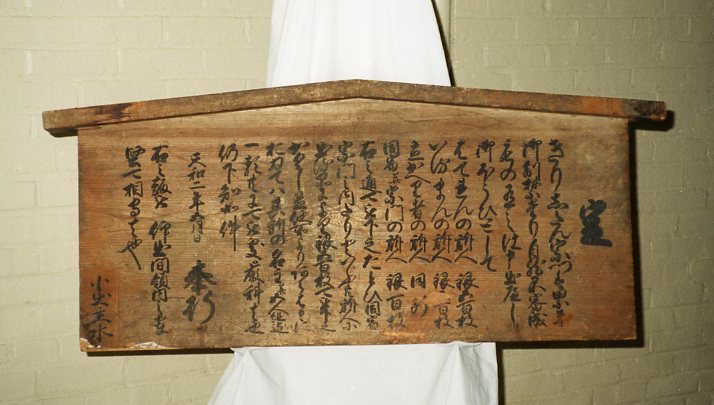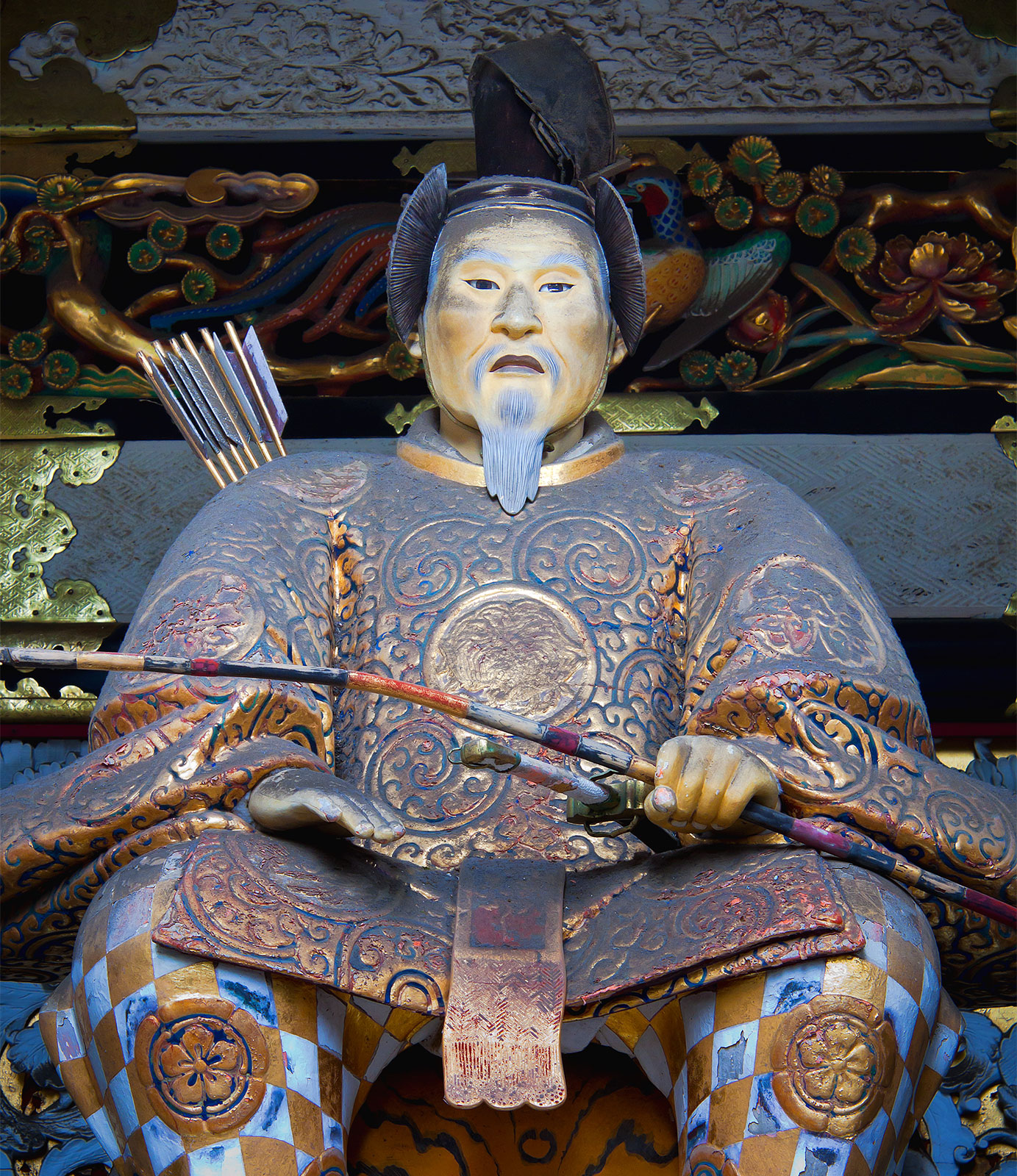The Sakoku Edicts

Sakoku Edicts of 1635, Eastasianhistory, 1659

Sakoku Edicts of 1635, Eastasianhistory, 1659
The edicts passed by Tokugawa Lemitsu prevented the Japanese from leaving their country for over 200 years. Many of these edicts focused on eliminating foreign trade or Christianity. Other edicts focused on strengthening Japan by getting rid of foreign influences. The majority of them had a death penalty of the following: hung, burned, boiled, crucified, decapitated, sawed, or waist cutting (cutting a person in half). There were also rewards for things like bringing in Christian Priests.

Exclusion of the Portoguese Edicts, Wordpress, 1682

In 1635, these edicts were passed by Tokugawa Iemitsu and the Sakoku began. There were no known protests or rallies because of the horrid threats of being killed. Even if people did not like being isolated, these edicts and threats kept them from leaving.
Monument to the Tokugawa Shogun, Britannica, No date
You can read the Exact Edicts by Tokugawa Iemitsu below
"1. No Japanese ships may leave for foreign countries.
2. No Japanese may go abroad secretly. If anybody tries to do this, he will be killed, and the ship and owner/s will be placed under arrest whilst higher authority is informed.
3. Any Japanese now living abroad who tries to return to Japan will be put to death.
4. If any Christian believer is discovered, you two (Nagasaki bugyo) will make a full investigation.
5. Any informer(s) revealing the whereabouts of foreigners will be paid 200 or 300 pieces of silver. If any other categories of Christians are discovered, the informer(s) will be paid at your discretion as hitherto.
6. On the arrival of foreign ships, arrangements will be made to have them guarded by ships provided by the Omura clan whilst report is being made to Yedo, as hitherto.
7. Any foreigners who help the bateren or other criminal foreigners will be imprisoned at Omjra as hitherto.
8. Strict search will be made for bateren on all incoming ships.
9. No offspring of southern Barbarians will be allowed to remain. Anyone violating this order will be killed, and all relatives punished according to the gravity of the offence.
10. If any Japanese have adopted the offspring of Southern barbarians they deserve to die. Nevertheless, such adopted children and their foster-parents will be handed over to the Southern barbarians for deportation."-Tokugawa Lemitsu
"11. If any deportees should try to return or to communicate with Japan by letter or otherwise, they will of course be killed if they are caught, whilst their relatives will be severely dealt with, according to the gravity of the offence.
12. Samurai are not allowed to have direct commercial dealings with either foreign or Chinese shipping at Nagasaki.
13. Nobody other than those of the five places (Yedo, Kyoto, Osaka, Sakai and Nagasaki) is allowed to participate in the allocation of ito-wappu.
14. Purchases can only be made after the payments are fixed. However, as the Chinese chips are small, you will not be too rigorous with them. Only twenty days are allowed for the sale.
15. The twentieth day of the ninth month is the deadline for the return of foreign ships, but latecomers will be allowed fifty days grace from the date of their arrival Chinese ships will be allowed to leave a little after the departure of the (Portuguese) Galliots.
16. Unsold goods cannot be left in charge of Japanese for storage or safekeeping.
17. Representatives of the five (shogunal) cities should arrive at Nagasaki not later that the fifth day of the long month. Late arrivals will not be allowed to participate in the silk distribution and purchase.
18. Ships arriving at Hirado will not be allowed to transact business until after the nineteenth day of the fifth month of the thirteenth year of Kwanei (June 22, 1636) "-Tokugawa Iemitsu